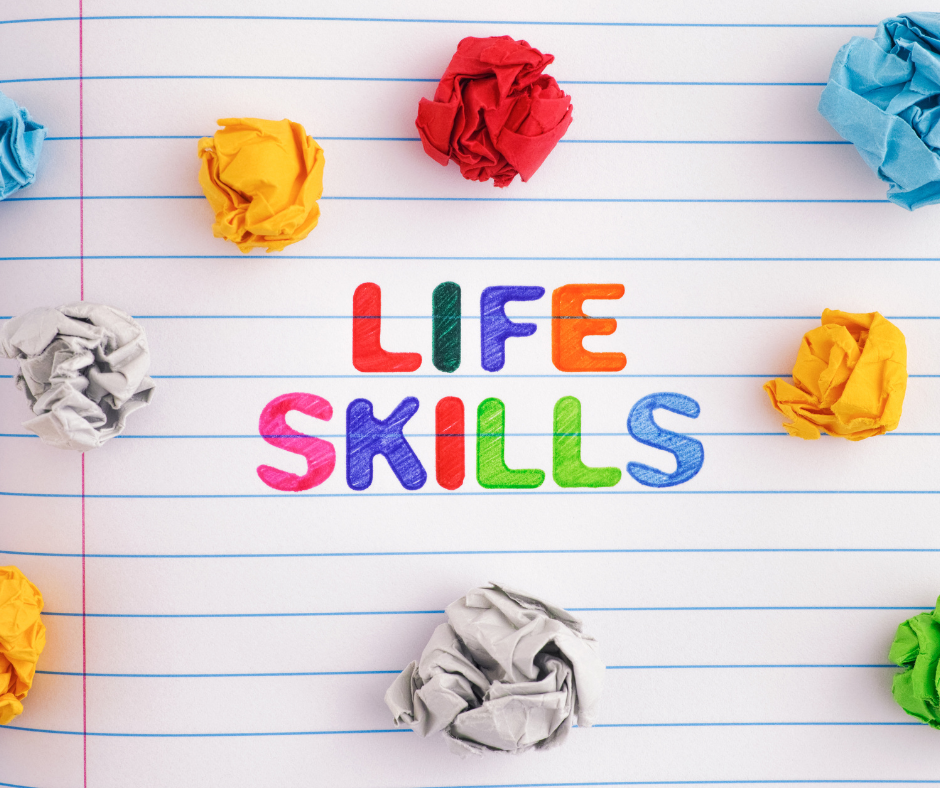The teenage years can be a chaotic rollercoaster of emotional highs and lows. Being a teenager is intense. So is being the parent of a teen. But how do you differentiate normal garden-variety teen drama from the warning signs of addiction or a teen mental health disorder? It’s not always easy.
Part of our mission at Horizon Recovery is raising awareness and education and empowering the parents of teens wherever we can. To that end, we’ve assembled a list of the most common signs that may indicate a teenager is struggling with drugs, alcohol, and/or mental health.
Top 10 Signs Of A Teen Mental Health Disorder or Addiction
1 — Mood Swings
Our teenage years are a time of great change. The pressures of growing up and self-discovery combined with surging hormones are bound to lead to some intense emotions. Mood swings can be a part of normal teenage development, extreme or prolonged mood changes may be a sign of a more serious concern like a depressive disorder or substance use.
A dramatic increase in the frequency or severity of these mood swings may indicate a teen mental health disorder or possible substance misuse. Try to help your child feel comfortable in discussing their feelings with you without fear of judgment.
2 — Changes in Academic Performance
A sudden drop in grades or loss of interest in school could signal a problem. Let’s face it, not every teenager is a star pupil or in love with school — but a sudden shift in academic performance can be one warning sign that something else is amiss in your child’s life. It’s best not to put untoward pressure on your teen about an academic downturn.
First, try having a casual conversation about how they are feeling. What’s changed in their life recently? Ease up on any pressure, guilt, or shame. Instead, ask if there’s anything you can do to help.
3 — Withdrawal from Social Activities
It isn’t unheard of for teens to be fickle about their interests or to experiment with different interests. But a more sudden change, like dropping out of a favorite sport after several years without a good explanation, may indicate something more than a loss of interest is to blame.
A sudden break with their usual group of friends and spending time with new friends whom they are reluctant for you to meet can be a red flag for an emerging substance use disorder or another psychological or social challenge.
Handle with care and be careful not to accuse your child of anything without evidence. Remember that keeping the lines of communication open is always your best move. Do what you can to keep them comfortable with talking to you openly and honestly — without fear of repercussions. Better you should know what’s happening than to remain in the dark.
4 — Changes in Sleep Patterns
Staying up late and sleeping in aren’t unusual behaviors for many teenagers. But, unusual excessive sleepiness, difficulty falling asleep, or frequent nightmares can indicate that something is troubling your teenager. The key term here is patterns.
What you want to look for here is dramatic or marked changes in their usual sleep behavior. Depression can lead to excessive sleeping. Anxiety can interrupt sleep. Substance misuse can lead to either/or, depending on the substance being used.
5 — Unexplained Physical Symptoms
This can include headaches, stomachaches, or other physical discomforts that don’t have a clear cause. Chronic psychological stress and persistent anxiety or depression can also manifest physical symptoms.
Substance use disorders or substance misuse may also lead to physical symptoms of course. Watch for signs of hangovers, excessive sleepiness, or sleeplessness.
6 — Changes in Eating Habits
Sudden weight loss or gain, or changes in appetite can indicate any one of a number of issues. It may be as simple as a lovesick teenager who had temporarily lost their appetite. Or it may be an emerging eating disorder, substance use disorder, or mental health disorder your teen is dealing with.
Don’t panic or jump to conclusions though. Instead, try approaching the subject gently, without accusing them of anything. Ask a few questions. Let them talk and listen carefully to what they say.
7 — Substance Use
Substance use disorders in teens can be complicated by other compounding factors and co-occurring conditions like depression, anxiety, or PTSD. Oftentimes, substance use is a means to escape uncomfortable feelings.
It may be the usual sort of discomfort many teens deal with, from bullying, ostracization, or academic stress. It could be related to gender identity, sexuality, or an undiagnosed mental health disorder.
The most important thing is that your child feels safe talking to you. Let them know that whatever challenge they are facing — you are on their side. Make it clear that substance use isn’t the solution to any problem, it can only complicate their lives. Avoid blaming or shaming.
8 — Secretive Behavior
Most teenagers have some expectation and desire for privacy and we must respect their boundaries as much as possible while keeping them safe. That can be a tricky balance to strike at times.
Secrecy, especially when it’s a new pattern of behavior or unusual and out of character, may be a red flag for substance use or addiction in your teen. Again, don’t jump to conclusions. Trust, but verify.
9 — Neglecting Personal Appearance
There’s no question that teenagers can sometimes be a little “gross”. We all know this. Younger teenage boys in particular may not have the hygiene habits we’d like them to. However, a marked lack of interest in appearance or hygiene can be a sign of depression or other mental health issues.
This is especially true when the lack of interest is a sudden change or out of character for your child. Don’t be afraid to ask questions and listen to their answer carefully.
10 — Frequent Anger or Irritability
Teenagers are notorious for their emotional volatility. It’s not unusual at all for a teen to have a blowout with mom or dad over a curfew, permission to use the car, or any one of a dozen other things. However, a teen who seems to be angry and irritable all or most of the time may be dealing with more than just frustration over house rules.
Final Thoughts on Teen Addiction and Mental Health
Most, if not all of the signs above, in isolation, can be part of a perfectly ordinary teenager’s life. So how can you tell if any of these signs is a possible indication of teen addiction or a mental health disorder? The answer is communication.
As difficult as it can be, it is critical to keep the lines of communication open with your teenager. Find ways to stay close to them and earn and keep their trust without making them feel crowded or smothered. Easier said than done, perhaps, but that is the answer we’re looking for here.
When you’re more involved in your teenager’s life and listening to what they have to say, you’re more apt to notice dramatic shifts in behavior or changes in mood and attitude. These are the potential “red flags” to watch for. It isn’t only behaviors we’re looking for. It’s patterns and dramatic and sudden shifts.
The more open your communication is with your child, the more time you can spend with them — the more likely you are to pick up on subtle changes that may indicate a problem.
The key is opening lines of communication and keeping them open before there is a problem if you can. That way your child is more likely to feel comfortable opening up to you
Tips for staying connected and aware of your teenager’s state of mind:
- Ask open-ended questions. Don’t interrogate them, just try to keep them talking to you about what’s happening in their lives. Let them lead the conversation for a change.
- Take an interest in their interests. If there’s an activity you can share, even if it isn’t your favorite thing to do, make an effort to engage with them through it. Sometimes a teen may not be ready to talk, but they might play a game with you and that’s a start.
- Be observant and aware. Rather than peppering your teen with probing questions or rifling through their dresser, pay close attention to shifts in behavior, dress, and mood. Help them see you as a safe person to share anything with.
- Remind them you are an ally. It’s easy for teens in crisis to feel embattled — as if it’s them against the world. Remind your child that you are an ally, not an enemy. All you want is for them to be happy and healthy, even if they don’t always understand your decisions.
Better Mental Health Treatment for Teens and Adolescents
Horizon Recovery offers a higher standard of care for teens struggling with addiction, depression, or other mental health challenges. If your teenage son or daughter is in crisis, we’re ready to help.
Horizon Recovery offers the best teen mental health treatment available in Phoenix, AZ. We feature outpatient treatment as well as residential care for teenagers with depression, anxiety substance use disorders, and much more.
Real change begins with action. Pick up the phone and give us a call at 602-755-7858 and together, we can get to work helping the teen you love right away.



